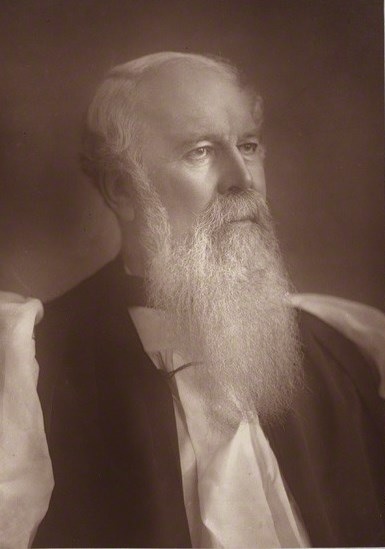In his book, Encounters with Jesus, Tim Keller flags this sermon from J.C. Ryle, and here’s a $$ quote from the Anglican bishop.
Ryle’s whole sermon here, and a choice bit below. (but after you do, please read my disclaimer below it).
“Now assurance goes far to set a child of God free from this painful kind of bondage, and thus ministers mightily to his comfort.
It enables him to feel that the great business of life is a settled business, the great debt a paid debt, the great disease a healed disease, and the great work a finished work; and all other business, diseases, debts, and works, are then by comparison small.
…..Assurance will help a man to bear poverty and loss. It will teach him to say, “I know that I have in heaven a better and more enduring substance. Silver and gold have I none, but grace and glory are mine, and these can never make themselves wings and flee away. Though the fig tree shall not blossom, yet I will rejoice in the Lord.” (Habak. iii. 17, 18.)
Assurance will support a child of God under the heaviest bereavements, and assist him to feel “It is well.” An assured soul will say, “Though beloved ones are taken from me, yet Jesus is the same, and is alive for evermore. Though my house be not as flesh and blood could wish, yet I have an everlasting covenant, ordered in all things and sure.” (2 Kings iv. 26; Heb. xiii. 8; 2 Sam. xxiii. 5.)
Assurance will enable a man to praise God, and be thankful, even in a prison, like Paul and Silas at Philippi. It can give a believer songs even in the darkest night, and joy when all things seem going against him. (Job ii. 10; Psalm xlii. 8.)
Assurance will enable a man to sleep with the full prospect of death on the morrow, like Peter in Herod’s dungeon. It will teach him to say, “I will both lay me down in peace and sleep, for thou, Lord, only makest me to dwell in safety.” (Psalm iv. 8.)
Assurance can make a man rejoice to suffer shame for Christ’s sake, as the Apostles did. It will remind him that he may “rejoice and be exceeding glad “ (Matt. v. 12), and that there is in heaven an exceeding weight of glory that shall make amends for all. (2 Cor. iv. 17.)
Assurance will enable a believer to meet a violent and painful death without fear, as Stephen did in the beginning of Christ’s Church, and as Cranmer, Ridley, Latimer, and Taylor did in our own land. It will bring to his heart the texts, “Be not afraid of them which kill the body, and after that have no more that they can do.” (Luke xii. 4.) “Lord Jesus receive my spirit.” (Acts vii. 59.)10
Assurance will support a man in pain and sickness, make all his bed, smooth down his dying pillow. It will enable him to say, “If my earthly house fail, I have a building of God.” (2 Cor. v. 1.) “I desire to depart and be with Christ.” (Phil. i. 23.) “My flesh and my heart may fail, but God is the strength of my heart, and my portion for ever.”11 (Psalm lxxiii. 26.)
Reader, the comfort assurance can give in the hour of death is a point of great importance. Believe me, you will never think assurance so precious as when your turn comes to die.
In that awful hour, there are few believers who do not find out the value and privilege of an “assured hope,” whatever they may have thought about it during their lives. General “hopes” and “trusts” are all very well to live upon, while the sun shines, and the body is strong: but when you come to die, you will want to be able to say, “I know” and “I feel.”
Believe me, Jordan is a cold stream, and we have to cross it alone. No earthly friend can help us. The last enemy, even death, is a strong foe. When our souls are departing there is no cordial like the strong wine of assurance.
Amen.
And I’d be remiss if I didn’t add this. Medication also helps.
I like that bit by on assurance by Ryle, and perhaps you did, as well.
But I also want to remind you that if reading that passage does nothing for your depression or anxiety, for your spirituality, then it is not that assurance does nothing for you — it is that your depression and anxiety work against your assurance.
Of course, you’re still God’s child, but if you have a mental health disorder, it’s far harder to feel assured of anything.
Which is why I always urge people to take care of their mental health for their spiritual health.
When your mind is working as intended, then it’s much easier to really believe that God’s promise is for YOU, and not just someone else.
I recently spoke with Diana Gruver who’s written about famous Christians with depression, and one such was the poet and hymn-writer William Cowper, who believed Christ’s redemption applied to everyone but him.
And when you’re depressed, that’s the kind of self-loathing that can make it impossible for us to feel anyone could love us — much less the perfect, sinless Christ.
Once you manage your depression, assurance becomes a much more beautiful thing because it doesn’t feel foreign. When you feel, “Ah, this actually is for me, too,” then well, everything gets better.

